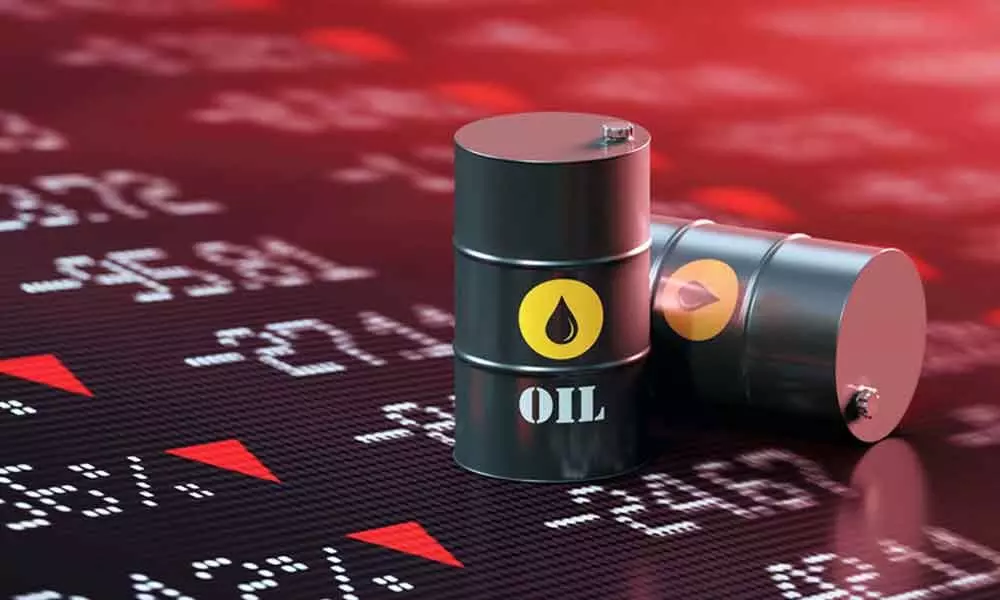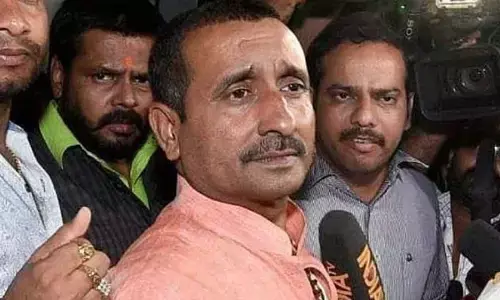Time govt cut oil prices aligning with global dip

Time govt cut oil prices aligning with global dip
The rise in prices has been not just due to international prices going up but the heavy taxes levied on these products by both centre and States
Just a few weeks ago, India had urged the oil cartel OPEC and its allies to ease production cuts in order to stabilise rising oil prices. The plea had met with the sharp response from Saudi Arabia that India could utilise the oil it had bought cheaply last year in April and May to fill up its strategic reserves. This rather undiplomatic comment must be viewed in the backdrop of last year's crash in global oil prices that has hurt the economies of oil producing countries. But prices are now falling yet again. The benchmark Brent crude has dipped from a high of $69 per barrel at the beginning of March to about $61.62 per barrel currently. Similarly, the American benchmark crude West Texas Intermediate (WTI) is ruling at even lower levels of $57.98 per barrel.
The net result in this country has been a small cut in retail prices of petrol and diesel. These had soared to record levels of Rs 100 per litre for petrol at one point. The price cut carried out right now is only marginal but raises hopes that it may deepen in the coming days and ease the pain of consumers.
The current dip in oil prices can be attributed largely to the volatile Covid scenario in many parts of the world that could reduce demand for petroleum products. In Europe, for instance, there has been a series of fresh lockdowns in Germany, Italy and France owing to a surge in new cases. The slowdown in the vaccine rollout in Europe has also raised doubts of a swift economic recovery in this region. At the same time, the shortfall in vaccine availability in many countries has equally had a depressing effect on the market. The American Petroleum Institute has also reported a build up in crude oil inventories of 2.9 million barrels for the week ending March 19. Rising inventories always have a depressing effect on prices.
The earlier rising trend of prices that cheered the oil markets over the last three months has been due to the revival of the world economy. For instance the outlook in the US has been improving rapidly owing to rising vaccination levels, financial aid from the stimulus package and the easing of social distancing rules. Similarly, political tensions in West Asia including the conflict between Saudi Arabia and Yemen have also affected prices. But the trend has reversed lately owing to higher inventories and surge in Covid cases.
This is bound to worry the Organisation of Petroleum Exporting Countries with their allies, known as OPEC plus. It will hold its next meeting in the first week of April to review the situation and take a view on production quotas. At last month's meeting, it had been decided to extend the existing cuts in production by another month, though exemptions were given to Russia and Kazakhstan. However, the situation has changed over the past few weeks and the cartel may have to take a view on whether production curbs should be extended further given the fact that prices are showing a softening trend.
What is now called as OPEC plus does a loose group comprise 13 OPEC members as well as ten other oil exporting countries. OPEC was forced to collaborate with other oil exporting countries after the huge increase in shale oil output in the US changed the equations in the world markets. It was no longer the earlier situation in which OPEC was able to control prices by maintaining production quotas for member countries. It could ensure that supplies were curtailed and prices kept within a controlled band. This method of keeping prices at a level needed to sustain economies of oil producers was no longer possible after the entry of shale oil in the market. It greatly enhanced oil availability and brought about a sharp fall in prices.
The subsequent collaboration of OPEC with other major producers like Russia ultimately pushed prices upwards to about 67 dollars per barrel by December 2019. The pandemic upset the scenario yet again as the world wide economic collapse led to a steep fall in demand for oil, and an unprecedented crash in prices last year. It was at that time - in April and May 2020 - that India purchased 16.7 million barrels to top up its strategic reserves.
With the launch of vaccinations in December 2020, however, economic recovery seemed to be on the way and demand for oil began to pick up. Prices began firming up since January this year. It is only in the last few weeks that there has been a sudden downturn in prices. One must mention that there is a little blip right now with a ship having blocked the Suez Canal and hence oil supplies from the region. This has pushed up prices but it is likely to be a temporary phenomena.
With international prices broadly declining, however, it is now time for the government to gradually reduce domestic prices of petrol and diesel. These had reached record levels of Rs 100 per litre for petrol in some cities. The rise in prices has been not just due to international prices going up but the heavy taxes levied on these products by both centre and states.
Though Finance Minister Nirmala Sitharaman has conceded that some way has to be found to cut petroleum product prices in consultation with state governments, there has been little action on this front. Neither the centre nor States are prepared to lose the massive revenues accruing from taxes on oil products. The central government's tax collections from these products are reported to have risen by over 300 per cent over the past six years. The burden of this revenue bonanza has been borne by the common man. It is now time to provide some relief. This may reduce revenue inflows to some extent but with a reviving economy, the shortfall may be made up from other sectors.








